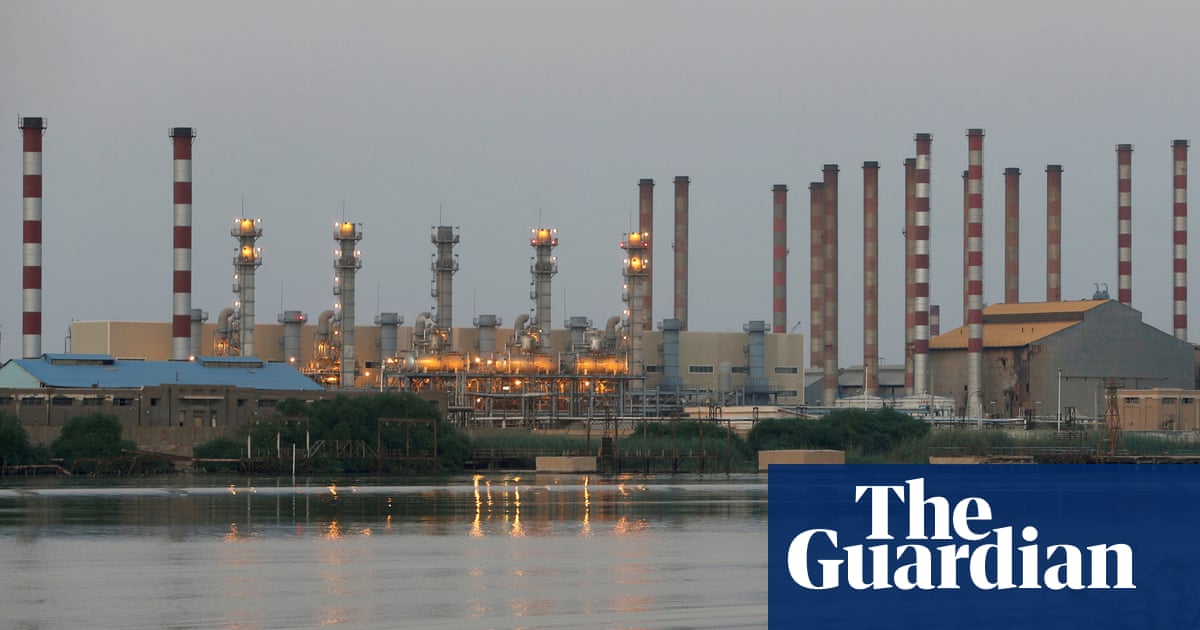An escalating Middle East conflict risks leading to higher oil prices, a reversal of the recent fall in inflation and a puncturing of the optimistic mood in financial markets, the International Monetary Fund has warned.
The Washington-based IMF said it was closely monitoring events in the region after Iran’s missile strike on Israel at the weekend and stressed the possibility that a war between the two countries could lead to higher interest rates.
Senior IMF officials used the launches of two reports – the World Economic Outlook (WEO) and the Global Financial Stability Review (GFSR) – to highlight the risks that a broader conflict would pose at a time when financial markets assume there will be a soft landing for the global economy comprising lower inflation, falling interest rates and the avoidance of recession.
In London, anxiety over the Middle East crisis, and concerns that central banks will not cut interest rates soon, combined to drive UK shares lower.
Previous wars in the Middle East have led to a sharp increase in oil prices and Pierre-Olivier Gourinchas, the IMF’s economic counsellor, said the fund was evaluating the possibility of another commodity shock from the region.
Gourinchas said: “The increased inflation that would come from higher energy prices would trigger a response from central banks that would tighten interest rates in order to secure inflation coming back to target, and that would weigh down on activity.
“It would do so in a context in which, in some countries, activity and growth is already fairly weak, so that might also have a strong effect there.”
Gourinchas said the impact of a 15% rise in oil prices and the higher shipping costs from a conflict that was not contained would lead to a 0.7% increase in inflation, and would also damage business confidence and investment.
Tobias Adrian, the IMF’s financial counsellor, said at the release of the GFSR: “We are very concerned about developments in the Middle East.”
Adrian said there had been a fall in share prices even before Iran launched its missile strikes on Israel, and while oil prices are stable there is a risk that they could rise.
“In such a scenario that leads to upward pressure on inflation,” Adrian said. “Higher interest rates could come back into play. Our key message to central banks is to make sure inflation is durably back to target and not to cut interest rates prematurely.”
Adrian used a blog that accompanied the release of the GFSR to caution financial markets against assuming there would be no fresh setbacks after the series of shocks to the global economy in recent years.
“A sense of optimism has pervaded financial markets in recent months, amid investor confidence that the fight against inflation is entering its ‘last mile’ and that central banks will ease monetary policy in the coming months. Stock markets around the world have risen substantially this year.”
However, he said there were “likely to be bumps along this last mile” and that geopolitical tensions could “weigh” on investor sentiment.
after newsletter promotion
The concerns over tensions in the Middle East hit financial markets in London on Tuesday. The FTSE 100 closed down 145 points, or 1.8%, at 7820 – the biggest drop in points since 6 July 2023.
The fall marked a three-week low, and a significant change in market sentiment since 12 April when the index almost hit its record high of 8,047 points.
Adrian added that there had been evidence from some countries – including the US – that the trend towards lower inflation had stalled. Higher-than-expected readings could challenge the “last-mile” narrative, potentially leading to a re-pricing of financial assets.
Andrew Bailey, the Bank of England governor, expressed confidence that the UK was on its way to lower rates despite the recent events in the Middle East. Interviewed in Washington, Bailey said the UK was “disinflating at full employment”.
He said: “There is strong evidence the process is working its way through. Our judgment on interest rates is how much do we need to see before we are confident of the process.”
In the WEO report, the IMF said Britain’s households would endure a second year without an improvement in their living standards in 2024 as the effects of high inflation would take time to abate.
Growth per head – one of the key measures of living standards – was expected to remain flat this year after a 0.3% drop in 2023, the report said.







